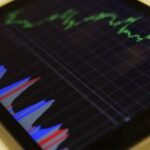According to veteran trader, Roman Bogomazov, mastering trading takes many, many years. In our SimCast episode with him, he outlines four core components of trading mastery, and the last one is about mastering trading psychology. Here are the four main ones:
- knowledge
- skill
- process
- mentality
Note that Mindset is last on the list here. It takes many years to master the psychology of trading. And part of this process is having the knowledge base, skills and experience of many market cycles.
This is part of the process. Years of trading experience in front of screens build implicit learning. The more you recognize patterns and changes in market sentiment and behavior, the more ready you will be for those similar opportunities in the future.
With that said, let’s take a look at some of the key components of mastering trading psychology.
Table of Contents:
TRADE DISCIPLINE
Business discipline is a matter of intentionality, according to the most prolific business psychologist of all time Dr. Brett Steenbarger. Dr. Steenbarger believes that it is a byproduct of having energy through personal discipline as well.
For example, if you don’t sleep well or nourish your frontal cortex through proper exercise and diet, you may not have energy and focus. You may also need breaks throughout the day. Eventually, all the little things in your life will add up. It lacks discipline in the little things, and you will also lack discipline in trading.
“If you lack energy, you will lack concentration; if you lack concentration, you lack
intentionality; if you lack intentionality, you will lack the ability to follow trading plans.”
Dr. Brett Steenbarger
Maybe you need to be a little more diverse in some areas of your life, like being a father or husband. Take seriously the things you value in life and intentionally, then apply it to your business career.
TRADING PERFORMANCE
The first step of any performance is practice. Practice, practice, practice. Trading is a performance profession. It’s actually no different from a sports profession, an actor, or even a doctor or lawyer. It all depends on how well you practice your craft when the lights are off and the seats are empty.
Don’t take it from us, not even Dr. Steenbarger, who has worked with hundreds of professional traders over the years, has this to say about trading performance:
“Think about every performance field: athletics, acting, music. In none of these do we start by following people online, doing some reading and then trying to make a living from our performance. Rather, we recognize that it takes years of practice and mentoring to become a professional athlete, movie star, or record artist.”
Dr. Brett Steenbarger, Ph.D.
So, keep in mind that if you don’t like the trading process or the learning process, you’re unlikely to excel in your trading performance. Traders who are successful actually enjoy the process of learning, studying, practicing and part of the market.
In other words, like discipline, achieving high trading performance is a product of being intentional with your efforts. However, there can be many “limiting cities” and bad underlying habits that you need to correct. We talk about it in our SimCast episode with Créde Sheehy-Kelly.
BAD TRADING HABITS
Believe it or not, most of our bad trading habits can actually stem from mental or physical habits. You can take two individuals who are new to trading, give them the exact same education, strategies, etc., and they will likely end up with different results.
The reason for this lies deep in the mindset of every trader and the baggage he brings to the market.
Bad trading habits can form simply because of the way we have grown. Did you grow up in a home that encouraged resilience and positive self-talk? Or, have you been raised to believe that some things in life are too difficult to accomplish? Do you struggle with self-sabotage when things don’t go your way?
Many of your bad trading habits could be bad mindset habits. Let’s take a look at some of them.
- Honesty and transparency
- Adequate expectations
- entertainment
- Flexibility and balance
- Making good decisions
- Laziness
- positivity
- Risk/loss aversion
- Self-love
- Concentration and vision
- Teachability
- resilience
If you read them and find that you are struggling with certain areas, it may be that your deeply ingrained mental habits are fueling your bad trading habits. Maybe you should look for ways to become more self-aware of your psychological habits?
THE IMPORTANCE OF COMMERCIAL PSYCHOLOGY
So far we have touched on many different issues regarding the psychology of trading. This is by no means an exhaustive list of problems you may encounter. However, we want to emphasize how important trading psychology is to your success in the markets.
Whether you are struggling with physical habits, mental habits or any other psychological problem, the sooner you work on them and solve them, the better your trading will be. All the best business plans in the world can’t make you enough money if you’re not disciplined enough to follow.
As part of this, it is important to know that we are human, emotional beings. Trading is not about becoming a robot. Rather, it is about becoming self-aware. Now, let’s take a look at how we can manage our business emotions through specific struggles that we may face in the market.


